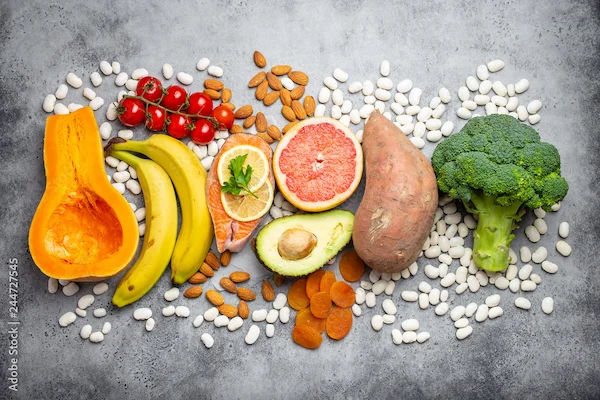Brinjal Benefits for Diabetes and Heart Health
Discover how brinjal supports diabetes management and heart health. Learn its benefits, nutrients, and easy ways to add it to your diet.


Eating healthy is one of the best ways to manage diabetes and keep your heart strong. Among the many nutritious vegetables, brinjal (eggplant or aubergine) stands out as a great choice for people looking to improve their health. This humble vegetable is not only delicious but also packed with nutrients that can help control blood sugar and support heart health.
In this article, we’ll explore the benefits of brinjal for diabetes and heart health, how it works, and simple ways to include it in your diet.
Why Is Brinjal Good for Diabetes?
Brinjal is a low-calorie, high-fiber vegetable that can be very helpful for people with diabetes. Here’s why:
1. Low Glycemic Index (GI)
Brinjal has a low glycemic index, meaning it doesn’t cause a rapid spike in blood sugar levels. This makes it a safe and healthy choice for diabetics.
2. High in Fiber
Fiber slows down digestion and the absorption of sugar, helping to keep blood glucose levels stable. A single cup of cooked brinjal provides about 2.5 grams of fiber, which supports better blood sugar control.
3. Rich in Antioxidants
Brinjal contains anthocyanins (the pigments that give it its purple color), which have strong antioxidant properties. These antioxidants help reduce oxidative stress, a key factor in diabetes complications.
4. May Improve Insulin Sensitivity
Some studies suggest that compounds in brinjal may help improve insulin sensitivity, allowing your body to use glucose more effectively.
How Brinjal Supports Heart Health
A healthy heart is crucial for overall well-being, and brinjal offers several benefits for cardiovascular health:
1. Lowers Bad Cholesterol (LDL)
Brinjal contains soluble fiber, which helps reduce LDL (bad) cholesterol levels in the blood. High LDL cholesterol is a major risk factor for heart disease.
2. Supports Healthy Blood Pressure
Brinjal is a good source of potassium, a mineral that helps regulate blood pressure by balancing sodium levels in the body.
3. Reduces Inflammation
Chronic inflammation is linked to heart disease. The antioxidants in brinjal, such as nasunin, help reduce inflammation and protect blood vessels.
4. Improves Blood Circulation
The nutrients in brinjal support healthy blood flow, reducing the risk of blood clots and improving overall heart function.
Consult an Dietician for the best advice
Best Ways to Include Brinjal in Your Diet
Brinjal is a versatile vegetable that can be cooked in many healthy ways. Here are some simple ideas:
- Grilled or Roasted Brinjal – A great side dish with minimal oil.
- Brinjal Curry (Baingan Bharta) – Cooked with tomatoes, onions, and spices.
- Stuffed Brinjal (Bharwa Baingan) – Filled with a mix of spices and herbs.
- Brinjal Stir-Fry – Lightly sautéed with garlic and olive oil.
- Avoid deep-frying brinjal (like in pakoras or fried curries), as it absorbs a lot of oil, which can reduce its health benefits.
Precautions & Tips
While brinjal is generally safe and healthy, keep these points in mind:
- May Cause Allergies in Some People – If you have a nightshade allergy, avoid brinjal.
- Moderation is Key – Eating too much brinjal may lead to digestive issues due to its fiber content.
- Avoid Excessive Oil – Cooking methods matter; opt for baking, grilling, or steaming instead of frying.
When to Consult a Doctor?
If you have diabetes or heart disease, it’s always good to discuss dietary changes with your doctor. If you need expert advice, you can book a consultation with a dietitian or cardiologist on Apollo 24|7 for personalized guidance.
Final Thoughts
Brinjal is a nutrient-packed, diabetes-friendly, and heart-healthy vegetable that can be a great addition to your diet. Its fiber, antioxidants, and low-calorie nature make it an excellent choice for managing blood sugar and improving heart health.
Try including brinjal in your meals in healthy ways and enjoy its benefits. If you have any concerns about your diet or health, don’t hesitate to seek professional advice.
Consult an Dietician for the best advice
Consult an Dietician for the best advice

Neelanjana J
clinical nutrition
3 Years • Bsc., Msc. Nutrition and Dietetics.
Bengaluru
Apollo Clinic, JP nagar, Bengaluru

Dr Venkata Naga Sai Tribhushan Rambhatla
General Physician
3 Years • MBBS
Bengaluru
PRESTIGE SHANTHINIKETAN - SOCIETY CLINIC, Bengaluru

Ms. Soma Saha
clinical nutrition
17 Years • B.Sc. - Home Science (Food & Nutrition), M.Sc. - Home Science (Food & Nutrition)
Kolkata
Dr Utsa Basu Clinic, Kolkata
(50+ Patients)

G. Divya
Dietician
5 Years • MSC. in Dietetics and Applied Nutrition
Bengaluru
Apollo Clinic, Koramangala, Bengaluru

Ms. Priyanka Saini
Dietician
9 Years • Msc (Food & Nutrition),NDEP
Ghaziabad
Dr. PRIYANKA SAINI'S CLINIC, Ghaziabad
Consult an Dietician for the best advice

Neelanjana J
clinical nutrition
3 Years • Bsc., Msc. Nutrition and Dietetics.
Bengaluru
Apollo Clinic, JP nagar, Bengaluru

Dr Venkata Naga Sai Tribhushan Rambhatla
General Physician
3 Years • MBBS
Bengaluru
PRESTIGE SHANTHINIKETAN - SOCIETY CLINIC, Bengaluru

Ms. Soma Saha
clinical nutrition
17 Years • B.Sc. - Home Science (Food & Nutrition), M.Sc. - Home Science (Food & Nutrition)
Kolkata
Dr Utsa Basu Clinic, Kolkata
(50+ Patients)

G. Divya
Dietician
5 Years • MSC. in Dietetics and Applied Nutrition
Bengaluru
Apollo Clinic, Koramangala, Bengaluru

Ms. Priyanka Saini
Dietician
9 Years • Msc (Food & Nutrition),NDEP
Ghaziabad
Dr. PRIYANKA SAINI'S CLINIC, Ghaziabad




